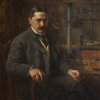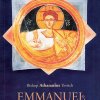Cinematographer and Director
Born in Belgrade. He was educated in Serbia, USA, Poland. Graduated with honors from the Faculty of Dramatic Arts, Cinematography Department, University of Arts, Belgrade, Serbia.
His first feature film, while being the student of the final year, "Live Broadcast", directed by Darko Bajic, was awarded on many domestic and International Film Festivals.
His work on the feature film "The Forgotten Ones", directed by Darko Bajic, won him highest former Yugoslavia’s cinematography awards: "Golden arena" and "Milton Manaki".
Feature film "Better than Escape", directed by Miroslav Lekic, was awarded the Grand Prix award, at the Herceg Novi Film Festival.
He also completed two twelve-hour miniseries, "Sivi Dom" and "Zaboravljeni", directed by Darko Bajic, considered to be among the best ever made in the former Yugoslavia.
In between feature film works, he directed documentaries and other short subjects: "Slavko Vorkapitch, Life and Death of a Hollywood Filmmaker", "King of the Dunghill", " Serb Embraces Slovenian, Croat,…", just to name a few.
From 1991. he lives in Los Angeles (USA), where he completed three feature films ("Prisoner of time", "Harbinger", "The Gray in Between"). "Prisoner of Time", directed by Mark Levinson, was in the official competition of the International Film festivals, Moscow and Palm Springs.
In 2005, for "Take a Deep Breath", directed by Dragan Marinkovic, he won "Gold Remi Award", for best cinematography, at the 38th Houston World-Fest, International Film festival.
"On the Beautiful Blue Danube", directed by Darko Bajic, is his tenth feature film as Director of Photography. At various Film Festivals, this film won many Domestic and International Awards. Among them it was awarded the winner of the Film Series at 2009 Cine Gear Expo, entitled "A Tribute to the Visual Art of Filmmaking". He also won Best Cinematography Award at the 2009 West Hollywood International Film Festival.
In 2011, completed full length documentary film, "O' Gringo", (90 minutes), coproduced by Urca Filmes (Rio De Janeiro, Brazil) and Magic Line (Belgrade, Serbia), directed by Darko Bajic. The film had an extremely successful theatrical run in Serbia and Brazil.
Currently finishing his short feature directorial debut, "Just Like Lemonade" expected to be completed soon.
Svetlopis Borisa Gortinskog: Umetnost između senke i svetlosti
Boris Gortinski je izuzetno cenjen filmski direktor fotografije, poznat po svom specifičnom svetlopisu. Stil fotografije koji je on odabrao obogatio je dramske situacije u svakoj sceni, stvarajući posebnu atmosferu. I dok se kreću u dijalektici svetlost-senka, Borisova ostvarenja podsećaju na ikonografiju, koja je prožeta svetlošću koja prevazilazi prirodne zakone. Naravno, dok vizantijska ikona „hvata“ onu nestvorenu svetlost, otkrivajući tako i božanski život, film podleže prolaznoj privlačnosti stvorenih fenomena. Borisov rad se odlikuje majstorskim korišćenjem svetlosnih senki, i igri sa ambijentima koje stvara bilo svetlo uličnih lampi ili sunčeva svetlost koja prodire kroz prozore. Kad god umetnost daruje onaj drugi ugao gledanja, takva dela stoje kao sjajni svedoci onostranog prisustva, nadilazeći narative sputane u senci. Borisovo obrazovanje u dramskoj umetnosti postupno ga је vodilo do dubljeg razumevanje svetlosti i kompozicije, što je postalo prepoznatljivo u njegovim filmovima. Njegova traganja nadahnjuje slutnja da postoji jedna vizija gde se sve kupa u svetlosti božanske estetike. Ta estetika ne odbacuje tehnološke izume, premda nad njima uvek lebdi senka sumnje da li njihove strukture i senke mogu preneti one istine koje nadilaze efemerno…
Kako Borisova stručnost u manipulaciji svetlom čini svaki kadar specifičnim, uz izražen dramaturški efekat, tako se i moć poruke uvećava. Svojim postupkom ovaj umetnik čini da često likovi i odnosi zablistaju kao svetlost. Tu je već duboko na tragu vizantijske umetnosti koja, odbacujući puki naturalizam, bira svetlosne prikaze u kojima svaka linija i senka pevaju o večnom zajedništvu, a ne samo o prolaznoj individualnosti. Analogije se ne zaustavljaju na rečenom. Poput vizantijskog svetlopisca koji je bio kadar da problem svetla reši sa minimalnim resursima, Boris asketski uspeva da sa malo svetla stvori duboku atmosferu...
Kao pionir u vizuelnoj produkciji, Gortinski je isticao u preciznom postavljanju svetla, posebno u dokumentarnim filmovima. Svakako, senke u filmu, rođene iz zakona fotografije, pokazuju istinu u fragmentaciji, dok ikona poziva na celovitost, spajajući vidljivo i božansko. Užurbani fragmenti filmskih kadrova zamenjuju se „večnokrećućim se stajanjem“ i mirnoćom pravoslavne ikonografije u kojoj svaki element zadržava svoju puninu. Borisov rad na filmovima kao što su Direktan prenos i Sivi dom postavio je nove standarde u jugoslovenskoj televizijskoj produkciji. Svojim radom on otvara prozore ne prosto za prikaze, već za „teofanije”, za svetlosno prozore u božansku misteriju, koji odolevaju vremenskoj dezintegraciji svojstvenoj filmu. I tako, Boris Gortinski je kroz svoje filmove stvorio umetnički doživljaj, u kome svetlost nije prosto tehnička alatka, već i ključni element koji oblikuje narativ i emociju svakog kadra, ostavljajući dubok utisak na gledaoca.
Ovaj tragalac za svetlom, koji je stekao priznanja na filmskim festivalima, kroz umeće stvaranja dostigao je duhovnu zrelost. Kroz sve njegove radove, svetlost i senke ostaju ključni elementi u stvaranju nezaboravnih kadrova, poput scene venčanja koju obogaćuje raskošnim sjajem sveća, dok su one teže emotivne scene, kao scena u zatvoru, osvetljene hladnijim tonovima, što odgovara emotivnom stanju glavnog junaka. I tako, film, kao medij pokretnih senki u borbi da izrazi svetost, često sapleten u sentimentalnosti ili teatralnosti, teži da postane ikona koja objavljuje blagodat. Na kraju krajeva, ikonički pogled ocenjuje umetnost ne po njenoj formi, već po istini koju se usuđuje da otelotvori, pokazujući da pravi izraz proističe iz umetnikovog zajedništva sa onostranim. Na taj način, Borisova dela nesvesno slavoslove Onoga koji je Svetlost istinita koja prosvećuje svakog čoveka koji dolazi u svet. Takvim tragaocima se naposletku daruje „svetlost od nezalazne svetlosti“.
Episkop Maksim (Vasiljević)





